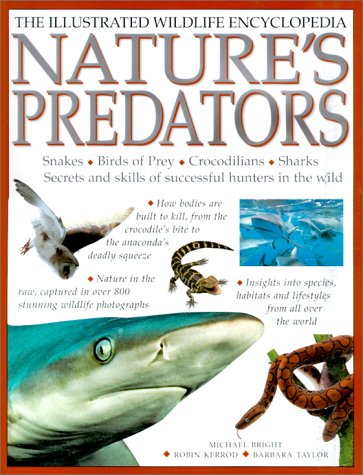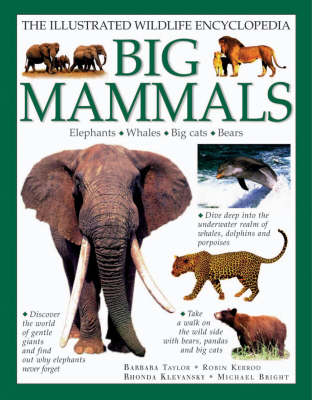The illustrated wildlife encyclopedia
3 total works
From snakes to birds, and from crocodiles to sharks, this fact-filled encyclopedia offers an insight into the fascinating world of nature and some of its most exciting and mysterious hunters. The book is divided into four sections and covers some of the most varied and powerful predators, both on land and in the ocean. Find out how some vultures ingeniously use tools in their quest for food, how snakes learn to defend themselves when threatened and discover the differences between alligators and crocodiles. With specially commissioned photography and informative text, this book aims to answer many questions on how predators live, including food and feeding, defence, life cycles, habitats and play. Myth boxes explore legends and stories from many cultures and ages, while focus spreads and "Did You Know?" features take a closer look and offer quirky facts to amaze and amuse.
Big Mammals
by Michael Bright, Rhonda Klevansky, Robin Kerrod, and Barbara Taylor
Published 1 March 2001
Children can learn about the super senses and diverse habitats, a dn compare their diets, child-rearing methods, rituals, migrations, hunting skills, and other specialized forms of behavior through fascinating text, great graphics, and hundreds of superb close-up color illustrations.
Examining all the intriguing aspects of minibeasts from spiders to social wasps, this book looks at how their bodies work, their behaviour, life cycles, survival tactics and ancestors. Close-up photography unveils the secrets of this world: silk-spinning spiders, super-sensitive antennae, clusters of eggs and the incredible sight of a perfectly formed insect emerging from its pupal case. Picture sequences zoom in even closer revealing the metamorphosis of a butterfly, how a spider spins its web and a wasp community building their nest. The book includes amazing-but-true facts in "did you know?" spotlights and panels on insects in myth, history, literature and film. The material supplements school curriculum science subjects at Key Stage 2 on life processes in the animal world.


